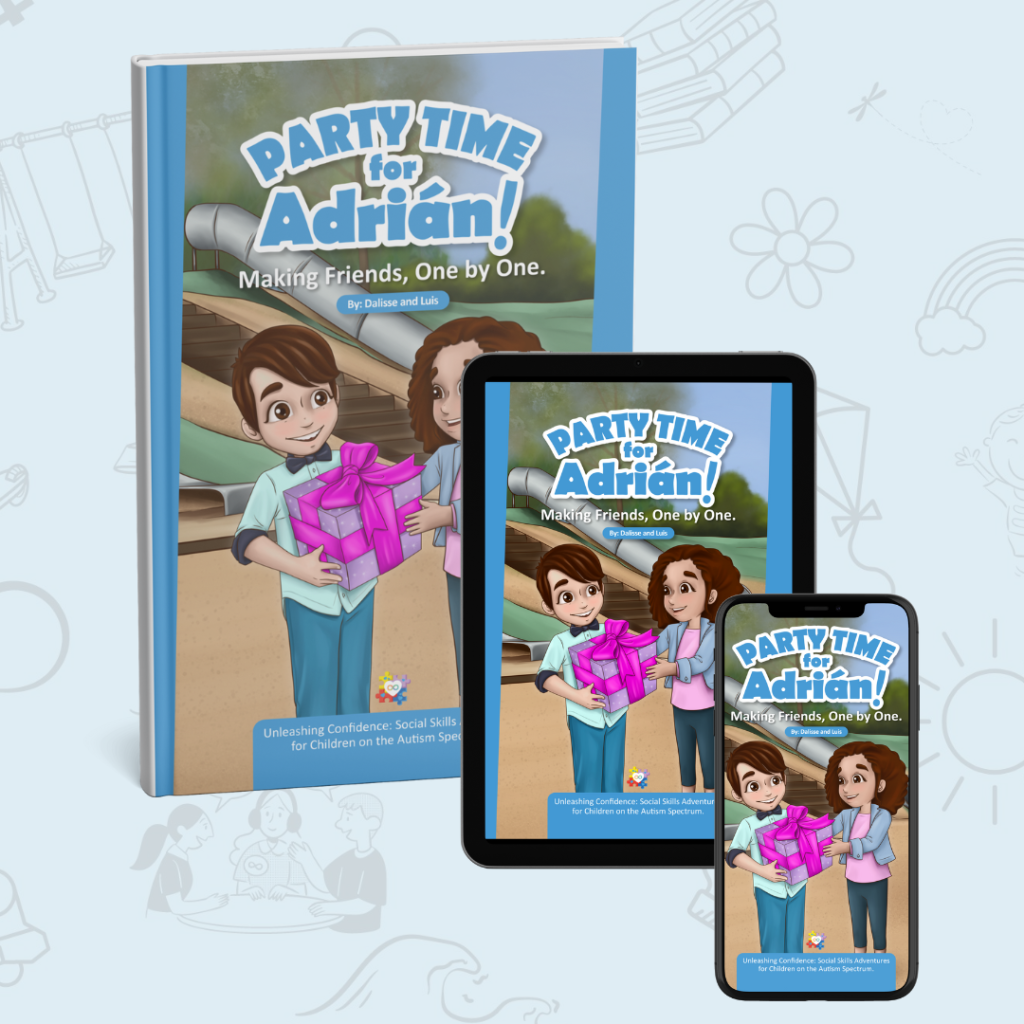Our story of hope and perseverance.
Hello Parents, Raising our two incredible boys, Adrián and Guillermo, has been a journey full of twists and turns, challenges, and triumphs. Some days, I wake up feeling overwhelmed, wanting nothing more than to stay in bed and let the world keep spinning without me thinking about it. On those days, the weight of parenthood feels heavier, the uncertainty of what the day will bring, the struggles, the meltdowns. But then I see them – Adrián’s smile lighting up the room, Guillermo’s infectious laughter – and something inside me shifts. Their happiness, their progress, and the little victories remind me why we keep moving forward.

Love is everything.
Luis and I have learned to take one day at a time. With two boys on the autism spectrum, no two days are the same. Some days are filled with breakthroughs, while others come with moments where we feel lost or uncertain. But each day, we face together, as a family, united by love and the deep bond we share.
Adrián and Guillermo have very different personalities. Adrián is curious, thoughtful, and loves to explore the world through his own unique lens. Guillermo is energetic, playful, very musical, and full of life. These two little souls have taught us more than we ever imagined about patience, unconditional love, and what it means to truly open your heart and mind to new perspectives.

In the beginning, we were scared. Scared of what the future might hold, scared of the unknown. But as time has passed, we’ve grown stronger. We’ve discovered a strength we didn’t know we had and a love so deep it transcends any challenges we face. We’ve learned to let go of expectations and to embrace the beauty of their uniqueness.
Our journey with Adrián and Guillermo has shown us that life is not about comparing them to others or wishing things were different. It’s about celebrating their victories, no matter how small, and finding joy in the moments where they thrive. Watching them flourish, watching them be happy and healthy, has been the greatest reward.
There are still days when I feel overwhelmed, when the tears flow, and when I question if I’m doing enough as a parent. But I know that Luis and I are doing the best we can. Together, we are stronger. And with our boys by our side, we face each day with courage, knowing that no matter what, we are giving them all the love and support they need to be the best versions of themselves.
Adrián and Guillermo came into our lives to teach us something important – that love isn’t about perfection. It’s about embracing the journey, with all its ups and downs, and appreciating the beautiful moments of growth, connection, and happiness along the way.
So here we are, taking one day at a time, cherishing every milestone, and learning to live in the present. We’re grateful for the lessons our boys have taught us, and for the way they continue to inspire us every single day. It’s not always easy, but it’s always worth it. And together, as a family, we will keep moving forward, stronger and more united than ever.
TEA-mo,
Dalisse




